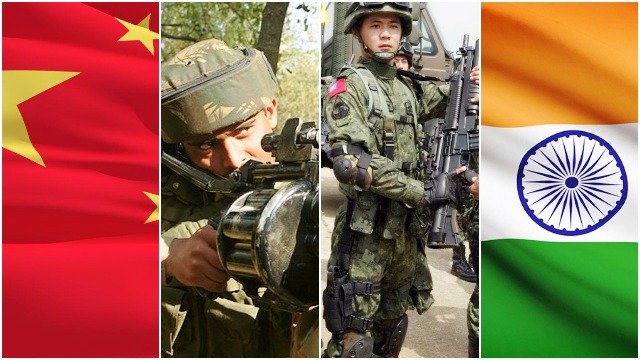
Hindu nationalism hurting India-China relations: Chinese media
A state-run news outlet in Beijing has also reminded India of its position, stating that New Delhi is 'weaker' than its Chinese counterpart, a fact that is seldom realised by Indian politician, it said.
Chinese tabloid Global Times has accused Indian Prime Minister Narendra Modi of mismanagement.
The tabloid also questioned the ability of Modi's cabinet, reminding them about their failure to curb Hindu nationalistic violence against Muslims.
In recent years India has witnessed a growth in religious violence, where Muslims have been targetted more often than not.
"The election of Indian PM Narendra Modi has fueled the country’s nationalist sentiments. Modi took advantage of rising Hindu nationalism to come to power. This, on one hand, has enhanced his prestige and ability to control the country, but on the other, has made India more subject to the influence of conservatives, thus hampering reform," the Global Times reported.
"In diplomacy, New Delhi is demanded to act tougher in foreign relations, especially toward countries like Pakistan and China. The border row this time is an action targeted at China that caters to the demand of India’s religious nationalists," the report read.
"The Modi government can do nothing if religious nationalism becomes extreme, as shown in its failure to curb violent incidents against Muslims since he came to power in 2014," it added.
The report written by GT commentator Yu Ning also accused India of being jealous.
"Since India’s defeat in the Sino-Indian War of 1962, some Indians have been stuck in a zero-sum mentality in dealing with China. The war inflicted lingering pain on India and it became a hard knot to untie, leading to an ingrained suspicion of Chinese strategy. China’s development is seen as a misfortune to India. The faster China grows, the more fearful they are," the commentary read.
"India harbors deep strategic suspicion toward China. It considers China as a rival and a potential enemy. For a long time, it has hyped that China is pursuing what is called the ‘String of Pearls’ to encircle India. Despite China’s goodwill in inviting India to join the Belt and Road initiative, India insists on interpreting the project as a part of China’s strategic containment and encirclement of it," it read.
However, contrary to the hagiographic piece about China's goodwill, the country's own stance about Islam has riled watch dogs over the years.
Reports about human rights violation is a frequent occurrence in the Communist regime, especially their hostility towards Uyghur Muslims.
Earlier, this year, the World Uyghur Congress (WUC), a Munich-based umbrella organisation promoting rights of the Uyghur people, had alleged that China was trying to prevent Muslims of Xinjiang province from keeping fast in the holy month of Ramadan, reports said.
The Uyghurs are a Turkic ethnic group living in eastern and central Asia.
They are a minority in China.
According to the WUC, officials in the Xinjiang province had order all eateries to remain open.
Government servants adhering to the Islamic faith had also been ordered to not keep a fast.
A Han official, speaking on the condition of anonymity, said that anyone who breaks the rule would be dealt with, if found out by the Chinese government.
The Muslim world has long cried foul at China's stance in Islamic matters.
In March, China banned burqas and long beards and in April banned Islamic baby names.
Support Our Journalism
We cannot do without you.. your contribution supports unbiased journalism
IBNS is not driven by any ism- not wokeism, not racism, not skewed secularism, not hyper right-wing or left liberal ideals, nor by any hardline religious beliefs or hyper nationalism. We want to serve you good old objective news, as they are. We do not judge or preach. We let people decide for themselves. We only try to present factual and well-sourced news.







